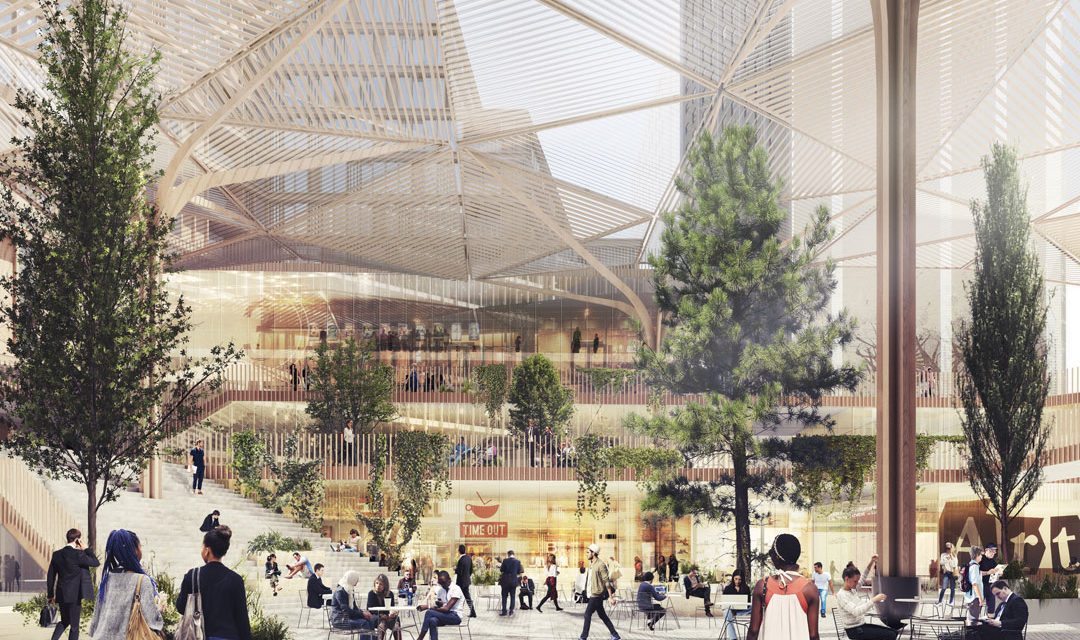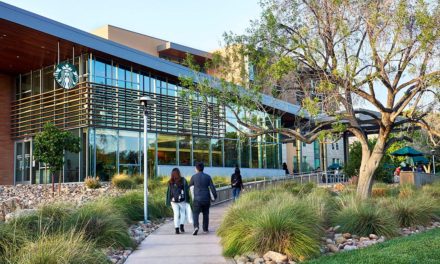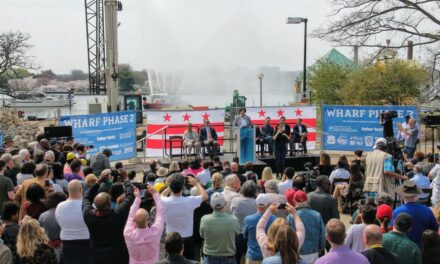[DETROIT] — Bedrock September 20, 2017, unveiled a package of four transformational developments totaling $2.1 billion in new investment that will reshape Detroit’s skyline and create both construction and permanent jobs totaling up to 24,000. The package of transformational projects, which includes the Hudson’s Site, Monroe Blocks, Book Tower and One Campus Martius expansion project, will now go before the Detroit Brownfield Redevelopment Authority as the first step towards the approval of new state financing under the MIthrive program enacted into law earlier this year.
“Detroit is going vertical,” said Dan Gilbert, Bedrock Founder and Chairman. “In fact, that is the only way to create any type of significant expansion in the city because we are virtually at full occupancy for residential and commercial space in both downtown and midtown. Transformational projects like these are necessary to both accommodate the expansion of current downtown businesses as well as making Detroit a legitimate competitor for new businesses and massive opportunities (like Amazon’s HQ2), and attracting vital talent from all over the country and world. In addition, these critical projects will attract new visitors and residents to the city, which will create a ripple effect of economic impact and job creation.”
Bedrock Founder and Chairman Dan Gilbert, Detroit Mayor Mike Duggan, and other elected officials and community members gathered at Detroit’s iconic Book Tower to celebrate this historic moment.
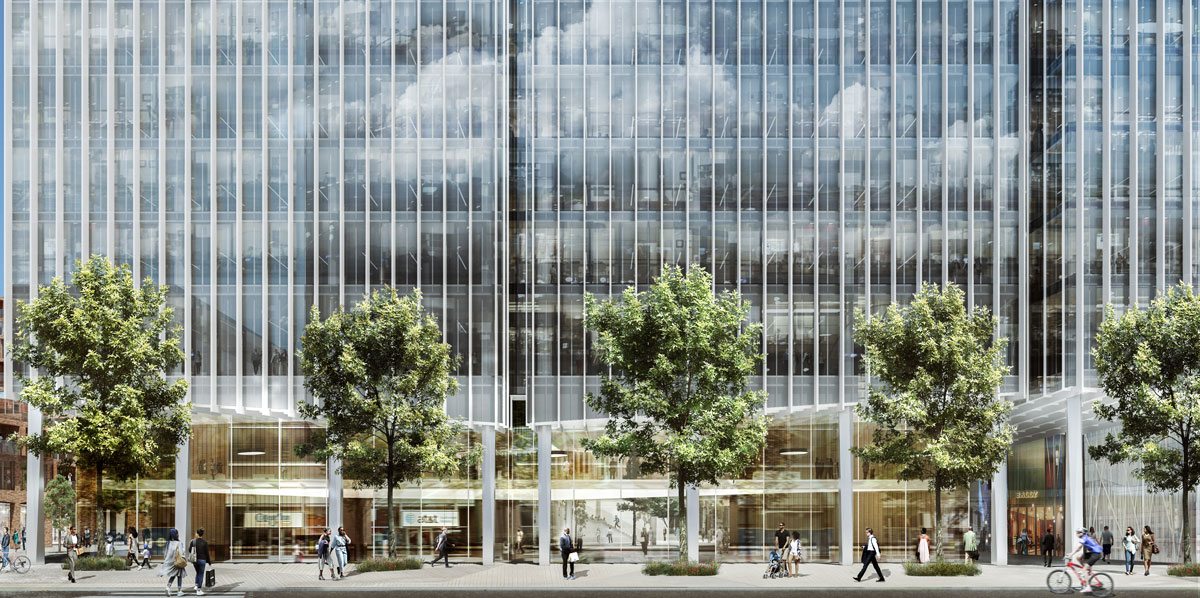
Monroe Avenue. Image: © Schmidt Hammer Lassen Architects
“The economic impact this project will have on our city is larger than anything we’ve seen in generations,” said Mayor Mike Duggan. “Not only will it produce thousands of new jobs and opportunities for Detroiters, it will reshape the city’s skyline and attract even more re-investment in Detroit.”
Together, these projects represent more than $2.1 billion in new investment in Detroit and will create a five-year construction pipeline with more likely coming from several other developers as well as Bedrock.
The four projects include:
- Hudson’s Site— The approximately $900 million, 1 million square-foot redevelopment of the iconic Hudson’s site will create a landmark attraction and make Detroit a national and international visitor destination. The project includes the tallest tower in the City of Detroit, complete with a publicly accessible sky deck on top of the residential floors. It also includes dynamic restaurant, retail and office space, and extensive exhibit and public space that will be open to all.
- Monroe Blocks— The $830 million transformation of the Monroe Blocks between the Greektown district and Campus Martius Park will deliver a 35-story, 814,000 square-foot office tower to attract leading companies and jobs to Detroit, 482 residential units, vibrant restaurants and retail, and three public plaza spaces for all to experience.
- Book Tower— The $313 million rehabilitation of the Book Building and Tower will be one of the most significant historic rehabilitation projects ever undertaken in Detroit and bring one of the City’s most treasured buildings back to life with a combination of 95 residential units, 180,000 square feet of retail and office space along with a planned hotel.
- One Campus Martius— The $95 million expansion of the One Campus Martius site will provide 310,000 square footage of critically needed office space so Detroit can continue to attract new companies and jobs and sustain its growth and momentum.
Bedrock will be investing equity and potential outside debt totaling $1.9 billion or 88 percent of the project costs, while securing approximately $250 million in bond funding or 12 percent of the total cost of the projects through the MIthrive program.
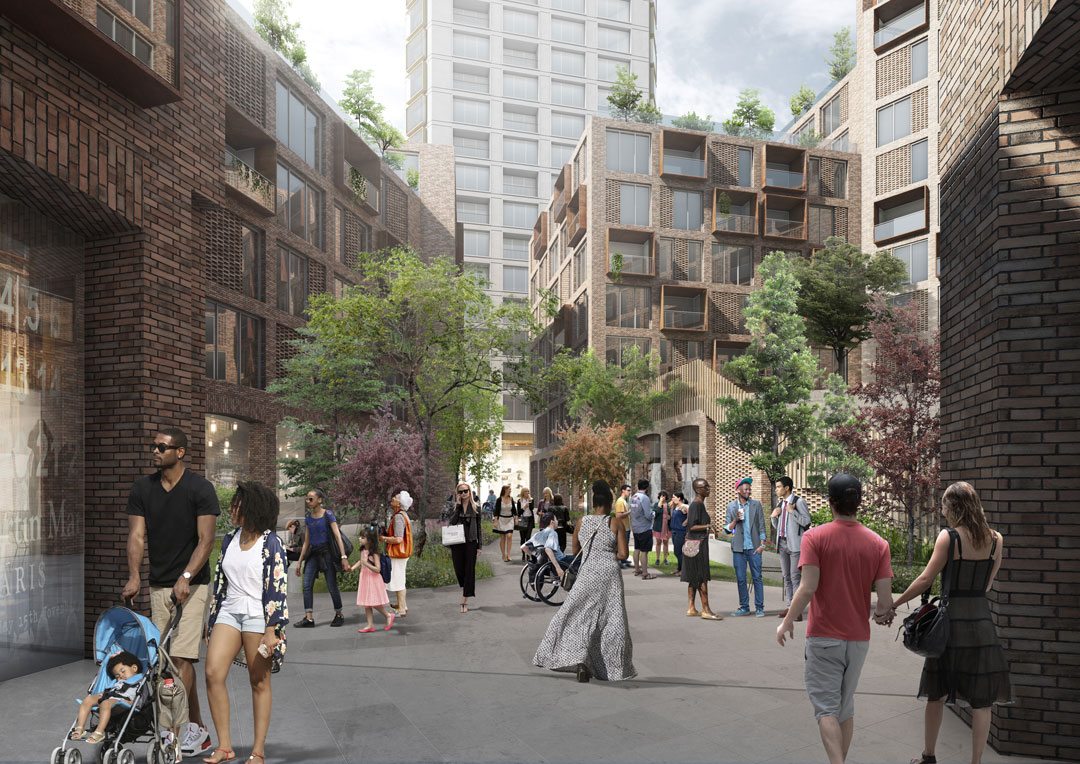
Farmer Block. Image: © Schmidt Hammer Lassen Architects
The Michigan Thrive Initiative (MIthrive)
These transformational investments are made possible through new state legislation passed earlier this year, known as the Michigan Thrive initiative or MIthrive. Detroit will be the first city to put this new state financing tool to work.
“One of the Senate’s top priorities is to pass legislation that supports an economic environment ripe for growth and investment,” said Michigan Senate Majority Leader Arlan Meekhof. “I was happy to be a champion for MIthrive because it positions Michigan to attract development and jobs that may have otherwise passed us by. Today’s announcement is evidence of the need for Michigan to continue to pursue policies that best position our state to compete for economic investment.”
MIthrive builds on the existing local Brownfield Tax Increment Financing (TIF) program by providing additional state support needed to make the most significant development opportunities across Michigan financially possible.
MIthrive works by allowing these projects to keep a portion of the new state tax revenue they generate to help close the gap between high redevelopment costs and what market rents can support. This mechanism is known as tax increment financing or “TIF.”
Today, these vacant sites generate little if any tax revenue. Once the developments are completed, they will generate a wide range of new tax revenues. To help make these projects financially possible and close the significant gap between construction costs and rental rates, MIthrive allows the projects to retain:
- State sales and state income taxes from the construction activities on-site; and
- Up to 50 percent of the state income taxes generated from new jobs and residents within the completed developments.
The MIthrive program was created to be a powerful tool to generate new revenue, jobs and economic growth in Michigan’s cities. Because of the way it was designed, the TIF for Bedrock’s transformational projects will not capture any City of Detroit taxes and has no impact on funding for Detroit schools.
The Path to Transformation
Because the MIthrive program builds on the current Brownfield TIF program, the first step in the approval process is the Detroit Brownfield Redevelopment Authority (DBRA). Bedrock intends to start the DBRA process in the weeks ahead. The State of Michigan, specifically the Michigan Strategic Fund, is ultimately responsible for approving all proposals applying for the MIthrive tool.
As part of the DBRA process, Bedrock will take the development plans before the DBRA’s Citizens Advisory Council. In addition, the City of Detroit and Bedrock are currently collaborating on a Community Benefits process for these projects, which allows residents in close proximity to the construction sites to have a direct voice in the development process and ensures that community input is taken into account.
The MIthrive legislation was designed to support a broad range of projects in Detroit and across the state. The program includes separate categories for “Transformational Neighborhood Projects,” making future opportunities possible throughout Detroit.
About Bedrock
Detroit-based Bedrock is a full-service real estate firm specializing in acquiring, developing, leasing, financing, and managing commercial and residential buildings. Since its founding in 2011, Bedrock and its affiliates have invested more than $5.6 billion in acquiring and developing more than 100 properties in downtown Detroit and Cleveland totaling more than 16 million square feet. Bedrock’s real estate portfolio consists of more than 330 office and retail tenants in Detroit’s technology-centric downtown. For more information, visit bedrockdetroit.com or engage with us on Twitter @BedrockDetroit and Facebook.

